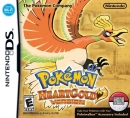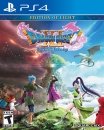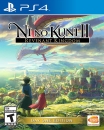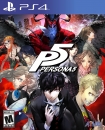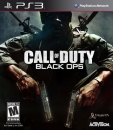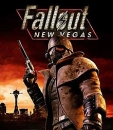I will tell you guys what's wrong with The Sword of Truth. Beyond it's tale being beyond real world depressing. Most of it was taken from a "how to write a fantasy book bible" I own.
First of, the villains. Goodkind is determined that no one empathize with his villain. His villain’s nam e is Darken Rahl. Yes, really. The first time we see him, he’s torturing and disemboweling a child. Yes, really. One of Darken Rahl’s servants is a pedophile whose liking of little boys is described and lingered on. Yes, really. One of the book’s minor villains tries to ban people from using fire. Yes, really. There are also the Sisters of the Dark, in an organization so similar to Jordan’s Aes Sedai that many, many people have accused Goodkind of outright copying. And, of course, they also practice sadism and rough sex. How horrible/monotone.
There is his hero too. Richard Rahl… If the narrative didn’t stop describing him as ruggedly handsome and having every other character in sight tell him, “You’re a special person, Richard,” then the series might actually have ended by now.
Goodkind’s main female character is Kahlan, Richard’s love interest. And I use that phrase quite advisedly. Kahlan seems to have her own separate position—as Mother Confessor, one of a number of women who can destroy other people’s minds and command them—and her own quest, on which Richard is a helper, at first. As the books pass, though, her concerns diminish, and she becomes almost obsessed with Richard. She can’t exist apart from him. Every book sees her convinced that he doesn’t love her and that, though she loves him, she has to send him away from her for his own good. Then they get back together again at the end of the book. Tell me, how is that feminist?
Hello misogyny. Goodkind’s other female characters often either fall in love with Richard, get tortured and raped and killed, or both. The series is notorious for its violence and gore, beyond what most fantasy series have. Hundreds and hundreds of women raped are nothing unusual for just one book, and the series now numbers eleven. Goodkind also includes anti-abortion diatribes for free. If you want to know how not to write strong female characters in fantasy, then you can consider Goodkind’s works a crash course.
Richard Rahl is worse then anyone concerning his character's abilities. He picks up abilities like magic, including stone-carving; he creates a statue that converts people from socialism to capitalism, despite no previous experience carving stone. (Goodkind has a Thing about proving that Socialism Is Evil). He kills every enemy he comes across. He manages to survive torture in a way that no one ever has, without having developed the technique to do so; it’s “instinctive.” Every book ends with an immense confrontation that “no one can win!”—except that Richard can, of course. His heritage allows him to protect everyone who’s sworn loyalty to him from the evil socialist emperor, who can otherwise control them. He makes friends with dragons and escapes from the clutches of evil sadomasochistic women, who then cower at his feet. He’s the beloved son of his adoptive father, the beloved grandson of the second most powerful wizard in the world, the beloved of the most powerful woman in the world, etc. It. Just. Never. Ends.
There has to be an ending. Characters like this are the reason I get so aggravated when authors insist on designing their people around their abilities, or making the protagonist the protagonist mainly because he has cool or unusual magic. When the magic destroys all hindrances, you have no stories left. And just as a lot of women on-stage doesn’t make those women strong or interesting characters, having your hero be the only one in the world who can do something doesn’t guarantee that the book will be worth the effort to turn the pages.
Goodkind has a world that was until recently subdivided into thirds by magical barriers: D’Hara, the Midlands, and Westland. (Imaginative at names Goodkind is not). There’s also the Old World, which is off to the southeast of D’Hara, kind of; it’s been a long time since I looked at the map in those books. It’s been a while since anyone traveled from the Old World to the Midlands, but only a single generation since the barriers went up between the three main lands.
Supposedly, everyone in Westland has never told their children anything about the Midlands or magic at all. Really. Honestly. All knowledge somehow lost in about twenty years.
Of course, this is also the country of the minor villain who wants to ban fire, so you might say, “What could you expect?” But no one remembers the Old World, either, despite the existence of a magical passage that some people from the Old World can use, and the existence of the evil socialist emperor who can invade people’s dreams. Goodkind just throws them in there haphazardly and as he needs them. New countries show up all the time. Millions of people show up all the time. Goodkind doesn’t develop cultures in conflict with each other, but as static entities to be destroyed or converted by the heroes.
This is a No-No. Your fantasy world needs reasonable demographics and geography. They may not be the same as Earth’s, they may run on different rules, they may not be as detailed as Tolkien’s, but they need to stay there, and if there’s every reason to suspect, as with Jordan, that the people have normal psychology and linguistic abilities, the language should fucking change like a normal language.
Neverending books. Goodkind will end the damn series and then keep with prequels and sequels.Richard and Kahlan just confront the next grand menace that no one’s ever confronted before and which is sure to tear them apart, survive it, and move on to the next grand confrontation that they won’t survive, except that they will, because you know there’s another book coming out.
Goodkind’s filler material is also description, but not of the landscape and clothing the way that Jordan’s is. It’s sadism, rape, torture of every description (the minor villain in the first book who likes to rape little boys is made to cut off his own testicles and eat them), more rape, killing, more rape, plague, more rape, murder, and more rape. Apparently, in the later books, Goodkind also spends much time ranting in a barely disguised Ayn Rand fashion about the evils of socialism, and his characters have long philosophical conversations instead of doing interesting things.












































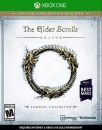
 ) and this was just after having a LotR movie marathon (theatrical edition, I did extended once... and never again.
) and this was just after having a LotR movie marathon (theatrical edition, I did extended once... and never again.  ) so I made the purchase of all three LotR books as well as The Hobbit... as I've never read them before (tried reading Fellowship long ago and stopped during their time with Tom Bombadil.).
) so I made the purchase of all three LotR books as well as The Hobbit... as I've never read them before (tried reading Fellowship long ago and stopped during their time with Tom Bombadil.).





